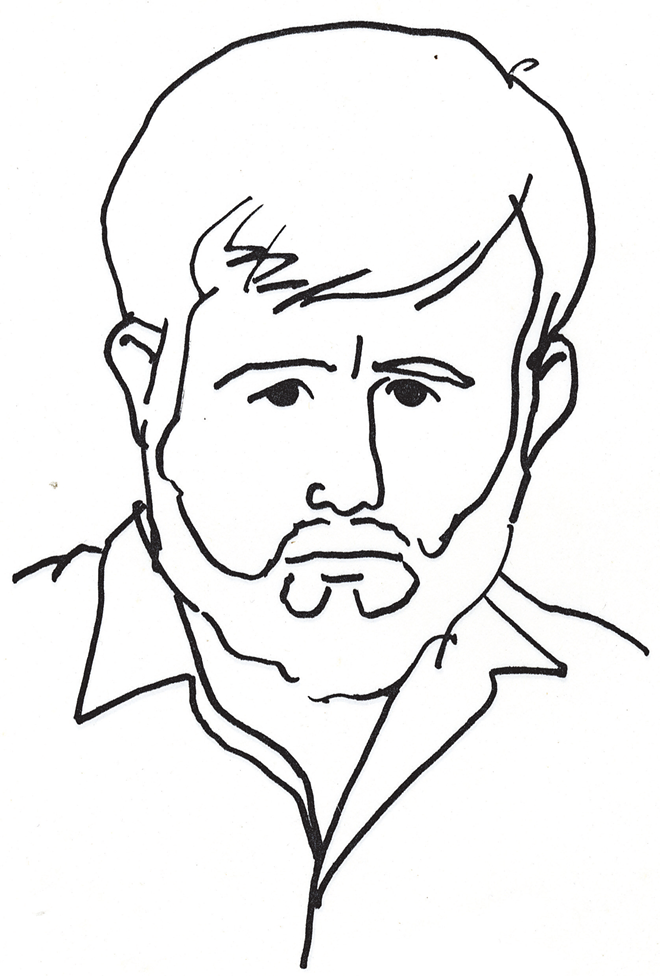Tom Stall, the narrator of Sterling Watson’s new novel, “The Committee,” would have smiled if he heard this famous quatrain below.
Being an English professor and scholar at the University of Florida, Stall probably would have known it’s been falsely attributed to Dorothy Parker, but would have tipped his glass in any case. (Full disclosure: I’ve had more than one martini with the author.)
The rill of gin running through “The Committee,” which takes place in the late 1950s, isn’t random. Remember “Mad Men,” the TV megahit set in the same era, when businessmen in New York regularly sipped their three-martini lunches? When I got out of the Army in 1957, I took part in a few of them with my dad in Bridgeport, Connecticut; I was working for a precision tool-making company and was lucky not to drill a screw through my knuckles. But Professor Stall and some of his Gainesville acquaintances would have fit right in.
Suitably, in Watson’s novel, Stall is working on an article for “Modern Fiction Studies” about Grahame Greene, who besides being a great writer was a serious drinker of gin. (A drink named after him, “The Graham Greene Cocktail,” was basically a dry martini with a dash of Crème de Cassis.) “Gin,” Stall thinks, “How I love it. It’s one way to deal with the surprising hell of life.” The gin in “The Committee” not only connects scenes and people, but is involved in the plot, when late in the novel it jumpstarts the action that lands the mild-mannered professor in dangerous and violent territory.
Living happily with his wife Maureen and young daughter Corey, Stall is hoping eventually to become chairman of the English Department. All is calm, normal. But the book begins with a splash: a friend and fellow teacher mysteriously falls from a nearby third-story window; and the surprising hell of life comes with him.
“The Committee” takes place on campus, but deserves to be included with those “academic” novels like Mary McCarthy’s “The Groves of Academe,” Randall Jarrell’s “Pictures from an Institution,” Kingsley Amis’s “Lucky Jim,” and Jane Smiley’s “Moo,” all books that burst out of their scholarly settings to light up the characters and societies they live in. And life in Gainesville in the 1950s doesn’t bear looking at too closely: Without being preachy or didactic, Watson’s book exposes the race, class, and gender wars running below the picturesque pathways like tainted water; there’s been some progress since then, but the reader is led to wonder how meaningful it’s been.
In “The Committee,” the Johns Committee, an actual Joe McCarthy-like investigation founded by Governor Charley Johns in 1956, arrives searching to weed out communists, gays, “undesirables” (i.e. non-whites and civil rights advocates) from the U. of Florida. Stall, starting with the death of his friend, gets enmeshed in the Committee’s vortex of lies, deception, and betrayal. Watson wraps this net around him, gradually and believably pulling in his past, his family, and his work, forcing this quiet natural observer to make life-changing choices.
Tom Stall has much in common with Jack Burden, the narrator of Robert Penn Warren’s great novel, “All the King’s Men.” Both are thoughtful anti-heroes who get sucked into larger struggles of ambition and politics that they never wanted. The trials and perceptions of these good men are at the engrossing centers of both books. At the end of Warren’s book, Jack Burden, with Willie Stark dead, is ready to come out of his shell and begin life. In “The Committee” Stall bravely and ingeniously ties things up at the college, but not in his own life, which lies before him like an unreadable book in a foreign language. As Stall heads out of Gainesville, “the air was fragrant with the spring that Florida’s February promised. Winter waited in Ohio, but he hoped not in his wife’s heart. At least not forever.” This book will hold you to the very end, and after.
Follow @cl_tampabay on Twitter to get the most up-to-date news + views. Subscribe to our newsletter, too.



